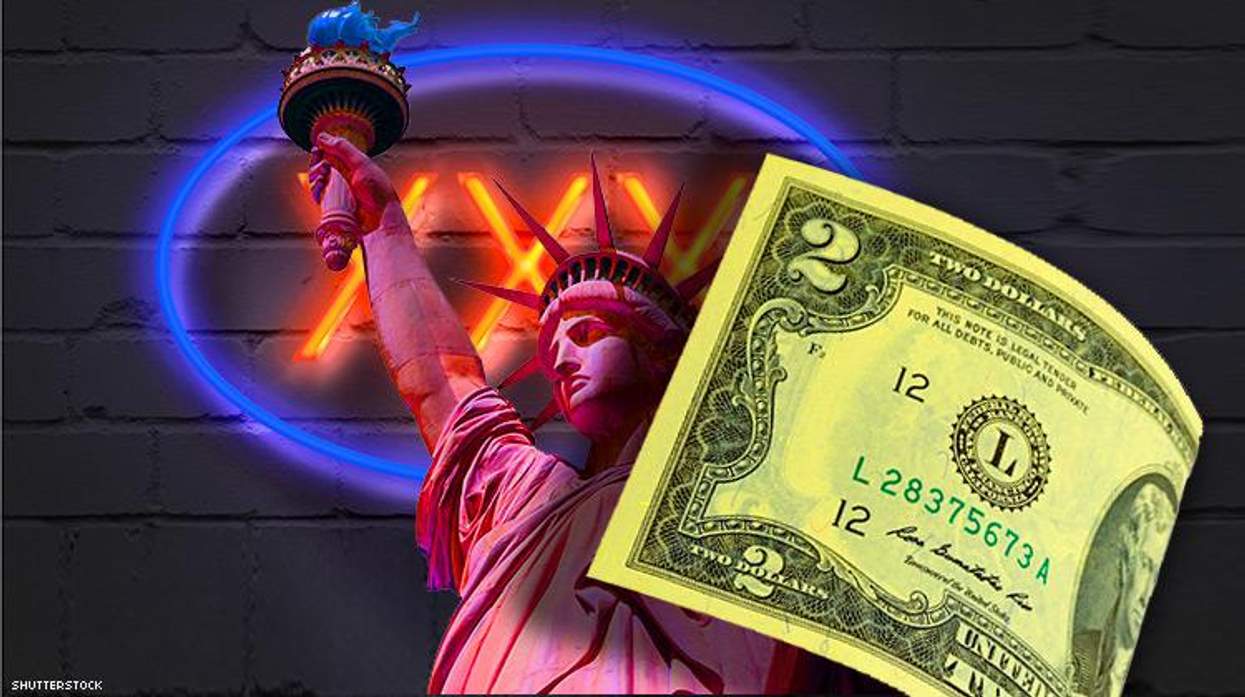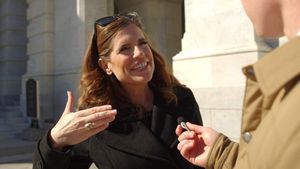Last Tuesday, New York General Assembly member Felix Ortiz, a Democrat, introduced a bill that, if passed, will add a $2 surcharge to the purchase of all "sexually oriented media." The proceeds would go to a "crime victims fund" in New York. The bill's text specifies which crime victims would be beneficiaries: "victims of domestic violence, hate crimes, human trafficking, and child prostitution."
The implication is clear -- that porn fosters child prostitution and sex trafficking. This same claim has been touted by many Democrats and Republicans alike, including 2020 hopeful Kamala Harris.
The claim is also a sex-phobic myth. Porn is a heavily regulated industry -- virtually every production company adheres to strict guidelines for verifying models' legal age. The intentional obscuficating of sex trafficking with adult media was the method by which Harris and others pushed the Fight Online Sex Trafficking Act (FOSTA) and the Stop Enabling Sex Traffickers Act (SESTA), which was signed into law last year by President Trump, and which has had disastrous consequences for consensual sex workers. The resulting wave of censorship following the passage of FOSTA/SESTA has already erased many digital queer communities and has spurred many sex activists -- this writer included -- to sound the alarm for a blatant anti-LGBTQ sex panic.
YNOT, a news source for the adult industries, first reported the introduction of the bill, which defines "sexually oriented media" as "a magazine, video, DVD or internet website whose domain name is registered in this state, where the content of such magazine, video, DVD or internet website features nude pictures or nude performances."
The bill defines "nude" as "entirely unclothed... or clothed in a manner that leaves uncovered or visible through less than fully opaque clothing any portion of the breasts below the top of the areola of the breasts, if the person is female, or any portion of the genitals or buttocks."
It is alarmingly similar to a law proposed earlier this month in Arizona that would force porn consumers to pay $20 to the state. Bizarrely, the money raised would be used to fund Trump's Border Wall.
YNOT points out that the wording of the New York bill as it pertains to websites would be sure to raise many practical questions apart from the legal and constitutional concerns it would create. If a consumer purchases a subscription to an adult website which streams content rather than offering it for download, for example, would the $2 surcharge apply to each month purchased by a consumer? Would it apply only to the initial act of subscribing? Or, with subscriptions that do not involve any downloadable content, would the surcharge not apply at all?
Should it pass, it will likely face difficulty surviving court scrutiny, but regardless, the misinformation it attempts to spread about industries that countless queer people depend on and enjoy has lasting harm. Adult media provides invaluable visibility and information to queer people in the closet.
"Expressive activities cannot be singled out for a special tax without violating the First Amendment," attorney Larry Walters told YNOT. "So, there are serious constitutional concerns with this bill. Many similar bills have been proposed for political purposes but fail to become law."
If the bill passes, Walters told YNOT, he will see it as yet another effort by lawmakers to associate porn with the human trafficking.
"The bill represents another attempt to tie adult entertainment to human trafficking and child prostitution, without any factual basis," Walters said.
ALEXANDER CHEVES is a New York-based writer and a sex columnist for The Advocate. Follow him on Twitter @BadAlexCheves.





































































Charlie Kirk DID say stoning gay people was the 'perfect law' — and these other heinous quotes